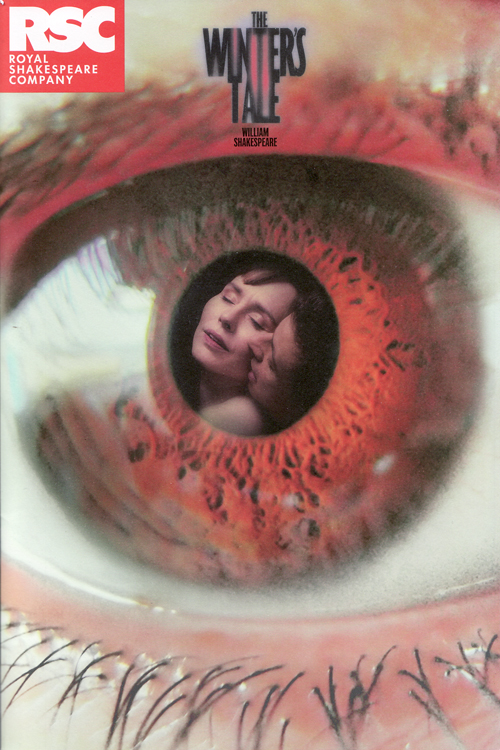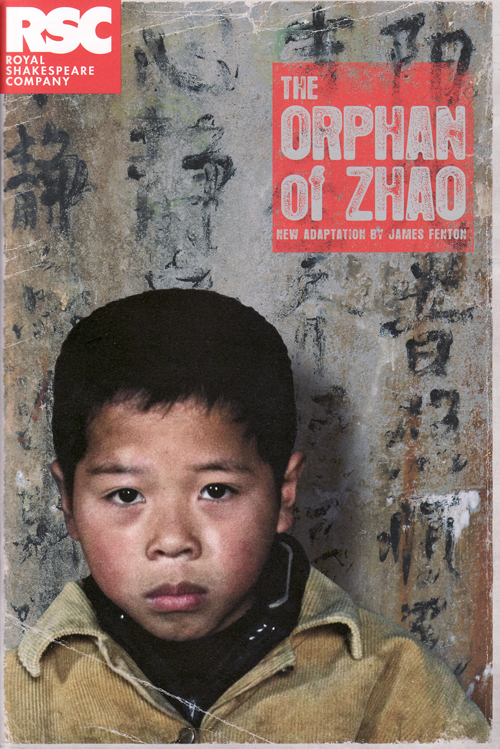On the stage: a Royal Shakespeare Company double bill
Okay, it wasn’t exactly a double bill. But while on holiday in Stratford-upon-Avon we went to see two RSC plays over two nights and I thought both were so great that I wanted to write about them here. Apologies for the week-long delay getting round to it!

The first play we saw was Shakespeare’s The Winter’s Tale. I had no idea of the story going in and as always it took a chunk of the first scene to really get into the flow of the language, but special mention must go to Tara Fitzgerald as Hermione because from her first line I was there, completely understanding and mesmerised. As it’s one of the lesser known plays, I’ll give a quick plot summary.
Leontes, king of Sicilia, accuses his pregnant queen, Hermione, of adultery with his life-long friend Polixenes, king of Bohemia. Polixenes flees Sicilia while Hermione is imprisoned – giving birth to a baby girl, whom Leontes orders to be abandoned. Hermione collapses and when news is brought of her death, Leontes repents his jealousy and goes into mourning. Sixteen years pass. The baby girl, Perdita, has survived, having been found and raised by Bohemian shepherds. Florizel, Polixenes’ son, has fallen in love with her and seeks to marry her. When his father opposes the match the lovers flee…to Sicilia. (NB It’s also the play with the famous stage direction “Exit, pursued by a bear”.)
I was torn as regards the staging and costumes. It was styled like an early 20th century Northern English seaside town, with a big projection screen at the back of the stage showing a pier and the sea. I felt that this all worked with the bawdy comedy elements (so most of the second half) but that’s not my taste in comedy.
In addition to Fitzgerald, there was a brilliant performance from Jo Stone-Fewings as Leontes. He played a slow-but-sure build-up to crazy and unreasonable, and was on stage for almost the entire play – there was an odd industrial tower thing centre stage on which he stood/sat/lay throughout many scenes set away from his palace, wonderfully conveying his long years of mourning.
The play has some very strong female characters, who get some great speeches defending themselves from the wrong that has been done, and notably the story is on their side, Leontes is very much in the wrong. There’s a key plotline centred around female friendship, which I can’t right now remember featuring heavily in any other Shakespeare play, though I don’t claim for a second to be much of a Shakespeare scholar.
I was pleased to find we had a picked a performance followed by a Q&A with some of the cast, which we hung around for. It was very interesting to hear their views on this “problem comedy”, with a particularly problematic ending, and a relief to find that they have all the same questions as actors as we do as viewers. In some cases they’ve had to try to answer those questions for their performance but they stressed that it’s only an interpretation and they gave examples of previous shows that had clearly followed different interpretations.

Our second RSC play was The Orphan of Zhao. From a 3000-year-old Chinese story, James Fenton has written this new adaptation of the play from several old versions, one of which was popular in England in Shakespeare’s time (that being the key link). It works well as a companion piece to The Winter’s Tale, having a similar plot but very different style.
The emperor and his favourite minister Tu’an Gu are pleasure-seekers. Three good counsellors remonstrate with the emperor about his excesses. One is banished, a second exiles himself, but the third, Zhao Dun, who is married to the emperor’s daughter, wants to stay. Tu’an Gu plots against Zhao Dun, massacres his clan and forces him to kill himself, leaving behind his pregnant wife, who is put under guard. If she has a son, he must be killed. When Dr Cheng Ying comes to deliver the baby, he agrees to smuggle the baby away. When Tu’an Gu realises the baby has escaped he decrees that every male child born that month will be killed if the orphan is not returned. Cheng Ying feels that the orphan of Zhao has an honourable duty to grow up to avenge his father’s death, so he arranges for his own newborn son to be mistaken for the orphan. Tu’an Gu then adopts the child he believes to be the doctor’s son, proposing that the two men raise him together, teaching him the arts of medicine and warfare. Skip 18 years and it is time for the orphan to learn his identity and his duty, but which parent will he be loyal to?
This was a powerful play. It didn’t have the poetry or rhythm of Shakespeare’s writing, and was heavily stylised, but I found it immediately accessible. It was about honour and duty, not emotion and yet it moved me greatly. There were again some strong female performances that greatly impressed me (especially Lucy Briggs-Owen as the princess) but it was the final scene with two men that had tears flowing down my cheeks.
The staging was brilliant – it could have been the same 500 years ago, or very close to (exchange electric lights for candles, smoke machine for actual smoke, etc) – they used puppetry, petals falling from the gantry, simple props and symbolic colours in costumes. It was all pretty classical. The humour was more my taste than the bawdiness of the “commoners” in The Winter’s Tale. And it was blended well with the rest of the play, whereas in The Winter’s Tale the comedy and tragedy sat awkwardly together. If I sat down to read The Orphan of Zhao I don’t think I’d be impressed but the performance as a whole was terrific.